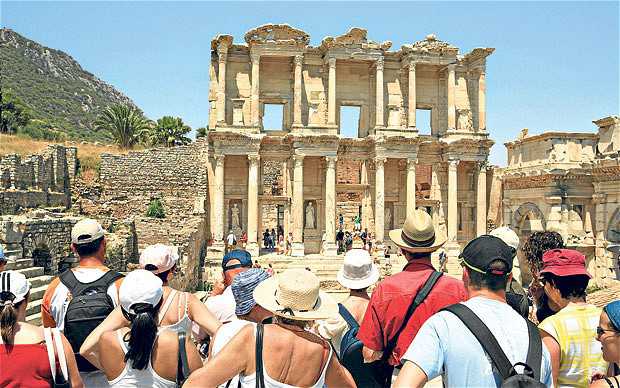WASHINGTON — The chairman of the Securities and Exchange Commission, a longtime proponent of deregulation, acknowledged on Friday that failures in a voluntary supervision program for Wall Street’s largest investment banks had contributed to the global
financial crisis, and he abruptly shut the program down.
Joshua Roberts/Bloomberg News
Christopher Cox, the head of the Securities and Exchange Commission, testifying before the Senate banking panel on Tuesday.
Related
Times Topics: Credit Crisis
The S.E.C.’s oversight responsibilities will largely shift to the Federal Reserve, though the commission will continue to oversee the brokerage units of investment banks.
Also Friday, the S.E.C.’s inspector general released a report strongly criticizing the agency’s performance in monitoring Bear Stearns before it collapsed in March. Christopher Cox, the commission chairman, said he agreed that the oversight program was “fundamentally flawed from the beginning.”
“The last six months have made it abundantly clear that voluntary regulation does not work,” he said in a statement. The program “was fundamentally flawed from the beginning, because investment banks could opt in or out of supervision voluntarily. The fact that investment bank holding companies could withdraw from this voluntary supervision at their discretion diminished the perceived mandate” of the program, and “weakened its effectiveness,” he added.
Mr. Cox and other regulators, including Ben S. Bernanke, the Federal Reserve chairman, and Henry M. Paulson Jr., the Treasury secretary, have acknowledged general regulatory failures over the last year. Mr. Cox’s statement on Friday, however, went beyond that by blaming a specific program for the financial crisis — and then ending it.
On one level, the commission’s decision to end the regulatory program was somewhat academic, because the five biggest independent Wall Street firms have all disappeared.
The Fed and Treasury Department forced Bear Stearns into a merger with JPMorgan Chase in March. And in the last month, Lehman Brothers went into bankruptcy, Merrill Lynch was acquired by Bank of America, and Morgan Stanley and Goldman Sachs changed their corporate structures to become bank holding companies, which the Federal Reserve regulates.
But the retreat on investment bank supervision is a heavy blow to a once-proud agency whose influence over Wall Street has steadily eroded as the financial crisis has exploded over the last year.
Because it is a relatively small agency, the S.E.C. tries to extend its reach over the vast financial services industry by relying heavily on self-regulation by stock exchanges, mutual funds, brokerage firms and publicly traded corporations.
The program Mr. Cox abolished was unanimously approved in 2004 by the commission under his predecessor, William H. Donaldson. Known by the clumsy title of “consolidated supervised entities,” the program allowed the S.E.C. to monitor the parent companies of major Wall Street firms, even though technically the agency had authority over only the firms’ brokerage firm components.
The commission created the program after heavy lobbying for the plan from all five big investment banks. At the time, Mr. Paulson was the head of Goldman Sachs. He left two years later to become the Treasury secretary and has been the architect of the administration’s bailout plan.
The investment banks favored the S.E.C. as their umbrella regulator because that let them avoid regulation of their fast-growing European operations by the European Union.
Facing the worst financial crisis since the Great Depression, Mr. Cox has begun in recent weeks to call for greater government involvement in the markets. He has imposed restraints on short-sellers, market speculators who borrow stock and then sell it in the hope that it will decline. On Tuesday, he asked Congress for the first time to regulate the market for credit-default swaps, financial instruments that insure the holder against losses from declines in bonds and other types of securities.
The commission will continue to be the primary regulator of the companies’ broker-dealer units, and it will work with the Fed to supervise holding companies even though the Fed is expected to take the lead role.
The Fed had already begun regulating Wall Street firms that borrowed money under a new Fed lending program, and the S.E.C. had entered into an agreement under which its examiners worked jointly with Fed examiners, an arrangement that is expected to continue.
The S.E.C. will still have primary responsibility for regulating securities brokers and dealers.
The announcement was the latest illustration of how the market turmoil was rapidly changing the regulatory landscape. In the coming months, Congress will consider overhauls to the regulatory structure, but the markets and the regulators are already transforming it in response to events.
Still, the inspector general’s report made a series of recommendations for the commission and the Federal Reserve that could ultimately reshape how the nation’s largest financial institutions are regulated. The report recommended, for instance, that the commission and the Fed consider tighter limits on borrowing by the companies to reduce their heavy debt loads and risky investing practices.
The report found that the S.E.C. division that oversees trading and markets had failed to update the rules of the program and was “not fulfilling its obligations.” It said that nearly one-third of the firms under supervision had failed to file the required documents. And it found that the division had not adequately reviewed many of the filings made by other firms.
The division’s “failure to carry out the purpose and goals of the broker-dealer risk assessment program hinders the commission’s ability to foresee or respond to weaknesses in the financial markets,” the report said.
The S.E.C. approved the consolidated supervised entities program in 2004 after several important developments in Congress and in Europe.
In 1999, the lawmakers adopted the Gramm-Leach-Bliley Act, which broke down the Depression-era restrictions between investment banks and commercial banks. As part of a political compromise, the law gave the commission the authority to regulate the securities and brokerage operations of the investment banks, but not their holding companies.
In 2002, the European Union threatened to impose its own rules on the foreign subsidiaries of the American investment banks. But there was a loophole: if the American companies were subject to the same kind of oversight as their European counterparts, then they would not be subject to the European rules. The loophole would require the commission to figure out a way to supervise the holding companies of the investment banks.
In 2004, at the urging of the investment banks, the commission adopted a voluntary program. In exchange for the relaxation of capital requirements by the commission, the banks agreed to submit to supervision of their holding companies by the agency.






